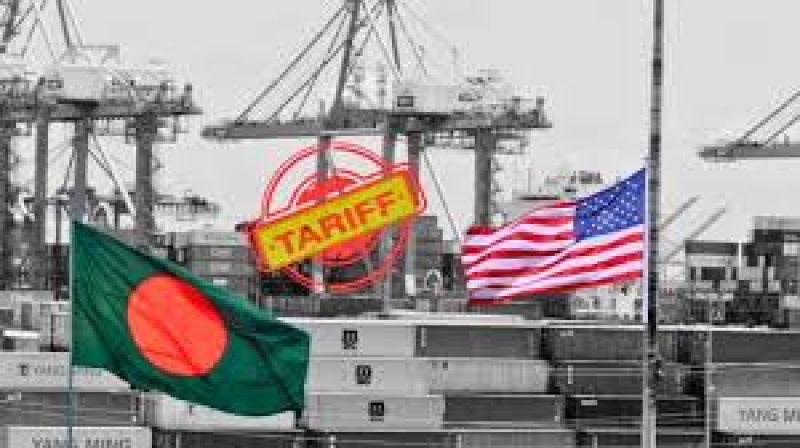- India Sees 9% Drop in Foreign Tourists as Bangladesh Visits Plunge |
- Dhaka Urges Restraint in Pakistan-Afghan War |
- Guterres Urges Action on Safe Migration Pact |
- OpenAI Raises $110B in Amazon-Led Funding |
- Puppet show enchants Children as Boi Mela comes alive on day 2 |
US Invites Bangladesh for Final Tariff Talks on July 29

The United States Trade Representative (USTR) has invited Bangladesh to resume the third and final round of negotiations on reducing tariffs, scheduled for July 29 in Washington, D.C., according to Commerce Secretary Mahbubur Rahman.
Earlier, Bangladesh submitted its position paper to the USTR on July 22 and had proposed July 26 for the final round. However, the USTR confirmed July 29 as the official date for the meeting.
Commerce Adviser Sk Bashir Uddin will lead the Bangladeshi delegation, and the meeting may take place either in person or virtually, depending on the final arrangements. If held in person, the team will depart for the US on July 27.
Although the talks will be held in a government-to-government format, some representatives from the private sector might accompany the delegation as observers.
Bangladesh is seeking a significant reduction in the existing 35 percent US tariff on its exports. The government is hopeful of a favourable outcome, as the US has already lowered tariffs for other nations—15% for Japan, 19% for Indonesia and the Philippines, and 20% for Vietnam.
In exchange, Bangladesh has offered duty-free access for several US commodities such as cotton, wheat, LNG, aircraft, and various agricultural goods. A recent deal signed on July 20 will see Bangladesh import 0.7 million tonnes of wheat from the US, and advanced discussions are underway to procure 14 Boeing aircraft.
While efforts were made to hire a US-based lobbying firm to strengthen Bangladesh's case, time constraints hindered progress. Despite this, a group of Bangladeshi business leaders is still attempting to appoint a lobbyist.
Zaidi Sattar, chairman of the Policy Research Institute (PRI), voiced his support for private-sector efforts to engage lobbying services and promised to share relevant economic and trade data if such an initiative proceeds.
However, some initiators expressed doubt over the practicality and impact of hiring lobbyists at this stage. The Commerce Adviser also clarified that structural policy changes, rather than lobbying, are key to progressing negotiations, and lobbyists have limited influence on such technical issues.
Bangladesh’s garment industry, which shipped $8.2 billion worth of apparel to the US last year, could face challenges if the current 35% tariff remains unchanged. Data from the Bangladesh Garment Manufacturers and Exporters Association (BGMEA) indicate that 1,322 garment factories export directly to the US, many of which risk losing work orders under high tariffs.
In response to the urgency, the commerce ministry recently held an inter-ministerial meeting to discuss reforms and policy adjustments to support the tariff negotiations. The government is aiming for a mutually beneficial agreement that protects export interests while opening the door for greater bilateral trade cooperation with the US.

